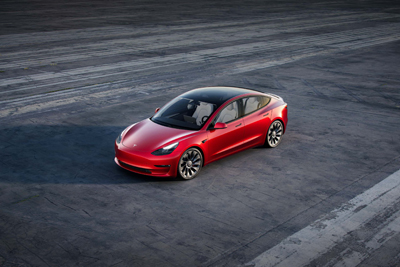Insurance Institute for Highway Safety (IIHS) President David Harkey said Tesla’s recently announced Full Self-Driving (FSD) Beta recall is representative of a wider issue on partially-automated systems and the way they are advertised.
In a statement posted on the IIHS’ official website, Harkey said drivers of partially automated cars have shown a tendency to treat their vehicles like they are already fully autonomous.
“The partial automation systems on vehicles today require the driver to be fully engaged in the driving task at all times and retake control when necessary," Harkey said. "Institute research shows that drivers who use partial automation on a regular basis often treat their vehicles as fully self-driving despite widespread warnings and numerous high-profile crash reports. However, none of the current systems is designed to replace a human driver or to make it safe for a driver to perform other activities that take their focus from the road."
Tesla initiated the recall on 362,758 vehicles equipped with FSD Beta due to a fault that may cause it to exceed the speed limits of inner city roads or travel through intersections in an unlawful manner.
Tesla’s FSD Beta recall is not like one from a conventional car company. Instead of affected owners taking their vehicles to their respective dealers or service centers to have their cars fixed, affected Teslas will only need to download a software update to address their faults.
Harkey also shared some criticism towards Tesla’s Autopilot and FSD Capability, which he noted had misleading names considering their current capabilities.
“Fully attentive drivers could prevent their vehicles from doing the things cited in the recall. The main problems for Tesla’s system include the misleading names of ‘Full Self Driving’ and ‘Autopilot’ and the fact that it does not have adequate safeguards to ensure drivers will pay full attention to the road," Harkey said. "IIHS has been working on the development of a new safeguard ratings program to address how well partial automation vehicles will keep drivers engaged in the driving task and will begin rating vehicles later this year."
While Harkey shared critical words towards Tesla, it should be noted the IIHS has given the electric vehicle maker due credit over the years. The Tesla Model 3 and Model Y, for example, were given a Top Safety Pick+ award by the agency last year, the highest rating the IIHS can give.










Abby Andrews